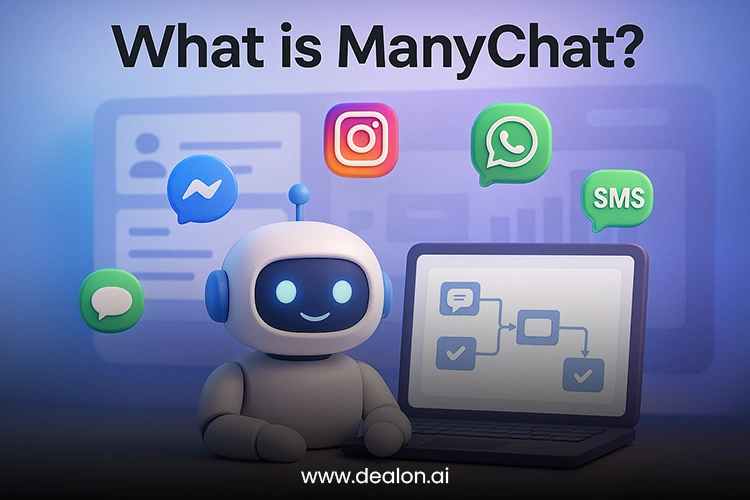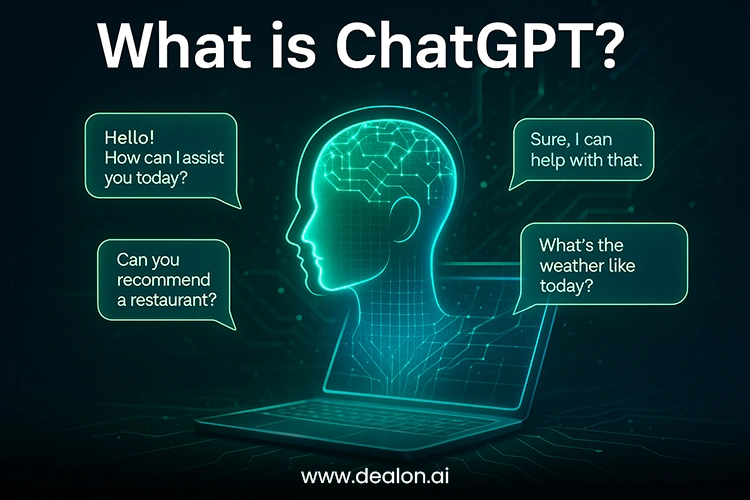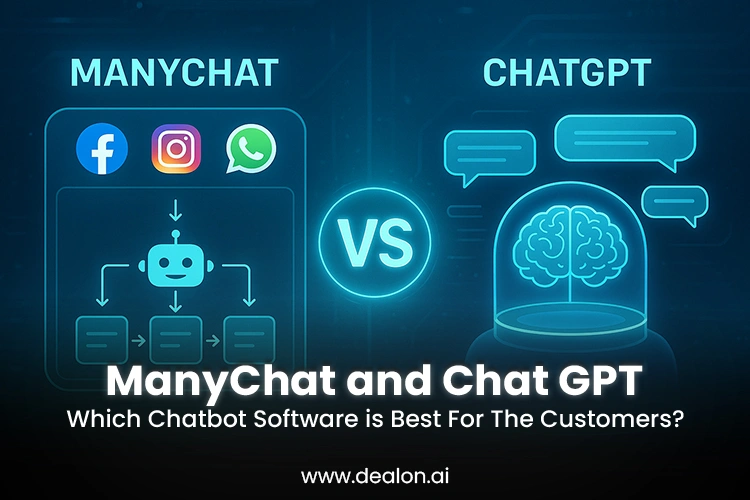Recently, chatbots have become more and more popular among businesses to streamline their sales processes, automate their interactions with customers, and increase the overall level of engagement. The two most famous are ManyChat and ChatGPT, which are practical tools that are guaranteed to change the way businesses communicate with clients. Although they have their exclusive benefits, it is a question of what is better for sales?
Starting with ManyChat, the service has an intuitive interface, easy integration into third-party services such as Facebook Messenger and Instagram, which makes it suitable for a business that is interested in introducing automation into the marketing and sales funnel quickly. It works well in streamlining processes, automating lead generation processes, and warming prospects through multiple touch points. Nonetheless, it has a rule-based construction, which can inhibit its capacity to offer contextual discussions or adjust to qualitative client communication.
ChatGPT, on the other hand, with the assistance of sophisticated discussions of natural language and deep learning, gives a very efficient method of interacting with customers. In contrast to ManyChat, which works based on preinstalled triggers, ChatGPT can analyze human-like communication to send more contextual, individual responses. It is highly scalable and flexible, thus being a convenient choice when a business wants to deliver customized experiences in large volumes, especially in those industries where complex requests or highly advanced product suggestions are required.
Here, we look at both platforms in detail so that we can evaluate their capacity, capabilities, strengths, and limitations, one of which will likely suit your sales approach. Being either a small enterprise that needs a convenient tool or an enterprise that is seeking deep, AI-powered dialogs, knowing about the peculiarities of ManyChat and ChatGPT will enable you to select the relevant tool that will take your sales process to new heights in 2025 and the future.
Also Read: 5 Reasons to Switch to AI Automation of Your Manual CRM
What is ManyChat?

ManyChat is an easy-to-use and visually appealing chatbot software solution to automate customer service interaction with the main aim of marketing and selling to customers. It allows companies to connect with their audience using messaging platforms such as Facebook Messenger, Instagram, WhatsApp, and SMS without hassles. By offering a visual interface and drag-and-drop builder, ManyChat enables marketers and sales teams (no matter how technically savvy they are) to establish an automated workflow that will nurture leads, routinely handle follow-ups, and deliver efficient customer care. This convenience has also made it a popular tool that is used in making businesses streamline their messaging systems and interact more with customers.
Among the most significant features of ManyChat, the capability to design automated messaging sequences should be mentioned. This feature enables businesses to configure welcome messages, auto-responses, and follow-up messages without the need to involve humans all the time. These processes can be tailored to present personalized content to the users depending on their actions on the website, say when the user clicks a doodad or visits a section of the site. Moreover, ManyChat offers the integration of other tools, e.g., Shopify, Google Sheets, and Mailchimp, so that a business can sync with customer information automatically and optimize the customer experience.
E-commerce In the case of e-commerce businesses, it is possible to use the product recommendation feature offered by ManyChat to have the chatbot recommend a product based on a past interaction or browsing history, which leads to increased conversions. Besides, ManyChat offers live chat; in case the businesses require human interaction at any point in time, they may switch to live chat.
Although ManyChat is appreciated mainly due to its availability and high accessibility, the implementation of the tools also has its initial limits. The platform is based primarily on rule-based automation, i.e., the workflows are constructed on predefined instructions and inputs. Although this is a relatively straightforward path to set the platform and use it, it lowers the flexibility of the platform compared to more sophisticated, AI-centered platforms like ChatGPT.
The fact that it requires specific, predetermined rules implies that ManyChat is not as flexible when it comes to processing complex inquiries or participating in interesting dynamic dialogues. This may be a limitation when dealing with businesses where it is essential to have highly customized interactions or have a chatbot that can modify its responses according to the context of conversations being carried out.
What Is ChatGPT?

ChatGPT is an innovation by OpenAI that improves the state of conversational artificial intelligence technology significantly. Compared to conventional rule-based chatbots, such as ManyChat, ChatGPT has more complicated natural language processing (NLP) and machine learning algorithms to interpret and produce robotic replies of human nature. This allows complex, dynamic conversations, hence it can be very versatile as it can be used in various ways, including lead qualification and direct customer care.
ChatGPT runs on a deep learning model, which helps it to handle huge chunks of unstructured data and therefore derive meaning, purpose, and specificities in the customer queries. This is extremely useful when it comes to conversational processes that involve multiple turns, as is the case in most sales or customer engagements. Damn, unlike rule-based bots, ChatGPT is not based on strict commands or conditions.
Instead, it trains dynamically on its training data, keeps learning and getting better, and gives a more human-like and fluid experience. To sales teams, ChatGPT will be able to connect with leads more substantially, provide personalized communications, make product suggestions, and respond to the unique needs of particular customers with more specificity.
The next benefit of ChatGPT can be discussed as its capabilities to answer various questions and complaints that may range from broad to more specific about a product. It can respond in detail in a relevant context, thus making it suitable in industries where detailed information is necessary, like the tech industry, the healthcare industry, or the finance industry. In addition, ChatGPT can also store and recall past communication and utilize the context to make personalized active conversations that will make the customer experience overall a positive experience with an increased likelihood of conversion.
Nonetheless, the strength of ChatGPT has some complexity associated with it. The technical experience needed to set up and optimize ChatGPT as a part of the sales process is much more arduous when compared to tools such as ManyChat. In order to maximize the use of ChatGPT, businesses will need to integrate it with other tools, including CRM and marketing automation products, along with customer data systems.
This could result in the need to invest in more resources and infrastructure, particularly in the smaller business models that do not have special teams when it comes to managing technical skills. Moreover, although ChatGPT is capable of conducting sophisticated conversations, it is necessary to monitor its performance so that it does not lose its business orientation and deliver the expected customer experience.
Besides, ChatGPT does not run on a simpler platform than ManyChat directly. Still, inherently, through technologies such as APIs and platforms, it needs a more substantial technical infrastructure. Nonetheless, the flexibility and scalability available in ChatGPT present an excellent opportunity, especially to businesses willing to have an AI-driven tool to support more advanced and customized conversations at a large scale.
Pros and Cons of Sales in ManyChat
ManyChat is a well-known alternative to address the problem of business automated customer interactions, with a particular focus on the user-friendliness of the platform and the lack of need to set up the platform. It is lovely to use by small to mid-sized businesses because of its ease of use and simplicity, but when sales have to be conducted in it, there are significant pros and cons.
Pros:
- Intuitive: The drag-and-drop interface of ManyChat enables even beginner users to develop and launch chatbots easily. This simplicity is a selling point and allows companies to begin automating without either the expensive training or specialized developers. This ease is highly beneficial to those companies whose resources are not extensive, since they can scale their customer relations without a long learning process.
- Multi-Platform Compatible: The possibility of being integrated with different messaging platforms is one of the most substantial advantages of ManyChat, as the application can now be compatible with Facebook Messenger, Instagram, WhatsApp, and SMS. Cross-platform integration will mean that the businesses will be able to connect with customers in places where they are most active, thus providing flexibility and creating greater engagement potential. ManyChat allows the brand to meet customers on platforms they prefer to serve them and makes the brand appear coherent across points of engagement, enhancing engagement and sales opportunities.
- Automated Workflows: ManyChat can automate the most repetitive tasks like lead generation, follow-ups, customer requests, etc. Establishing workflows with the help of predetermined algorithms, companies will be able to deal with leads effectively, offer them quick replies, and dependably lead consumers through sales channels in bulk. Besides enhancing efficiency, this automation also guarantees that the businesses are always serving customers in the most appropriate ways, as a result of being timely and relevant as well.
- Affordable: ManyChat is not very expensive, so the business will not end up paying more than it needs. It has low-cost packaging that is very attractive, considering all the features that the company would want to have in such a tool.
Cons:
- Weak Provisions of AI: ManyChat is an effective tool to conduct a task with the help of rules, but the conversational competencies of this program can be discussed as rather insufficient compared to the more advanced AI service, such as ChatGPT. The platform relies mainly on predetermined rules and decision trees, which makes the responses it gives repetitive or non-human-like, in more complicated situations. Such a deficiency in high-level natural language processing may pose an obstacle where businesses demand a chatbot that can lead to more flexible and variable communication.
- Basic Personalization: Manychat provides a degree of audience segmentation and targeted messaging, but its degree of personalization is subdued by the regulations stipulated by the user. The platform does not respond in real-time to changing customer behaviour or context, and so does not have similar dynamic personalization capabilities as more advanced AI-powered systems. ManyChat might not be suitable for businesses that want to provide very customized experiences depending on the tastes or past engagement of the customer.
- Reduced Flexibility: ManyChat would fit businesses that need simple automation and sales processes in nature since the platform is rule-based. Nonetheless, companies that would need a chatbot with the ability to accommodate complex, context-sensitive dialogues will find this chatbot rather restrictive. The fixed logic of ManyChat may limit its creativity and fail to move to more advanced use instances, which may be a limitation of bigger businesses or more demanding ones.
Pros and Cons of Sales Using ChatGPT
The super AI of ChatGPT has opened up a sophisticated domain in the use of chatbots beyond the scope of what is possible with rule-based platforms such as ManyChat. It provides lifelike and dynamic conversations, and it is appealing to sales teams that wish to offer a customized, scalable, and context-sensitive experience. But along with its strength, there is also a complication, and it is that you need to weigh out the advantages and disadvantages in order to make a correct decision in your business.
Pros:
- Enhanced Conversational AI: ChatGPT is a more advanced dialogue that allows engaging and natural conversations. Its capabilities in comprehending and acting human-like enable it to gain rapport among customers and make the communication feel more personal and less mechanical. This is especially useful in a sales setting since it helps build stronger customer connections, leads to engagement, and increases the chances of moving prospects farther along in the sales funnel.
- Scalability: ChatGPT is scalable, unlike ManyChat, which limits the use to rule-based automation. It can do multiple interactions at any one time without compromising the quality of responses. This is what makes it the best in companies that have a high-volume sales process or have large numbers of customers. Regardless of the need to reach thousands of potential leads or address customers 24/7, ChatGPT scales with the demand so that each interaction is responsive and personal.
- Contextual Understanding: ChatGPT can process and comprehend context, and it can become intelligent at solving complex questions for customers. Unlike less complex bots, ChatGPT is not based only on predetermined triggers. It can address the details of a dialogue, qualify leads, make product suggestions, and provide a personalized answer on the basis of presented information. Such a higher degree of personalization translates to an increase in the level of customer satisfaction and conversion rates.
- Connection with the Sales Platforms: ChatGPT is also a product that can be connected with CRM and other sales platforms, and help businesses monitor their messages and develop leads effectively. The integration obtained guarantees that all the data on customers is centralized, which helps monitor progress and make outreach customization as well as continuity in communication easier.
Cons:
- Complexity of Setup: The ManyChat interface is user-friendly, but ChatGPT needs a more in-depth skill set to be set up and optimized. Its integration with APIs, CRM systems, and other business tools may be a complicated context that would involve technical teams or some special resources. This is because it can be a hindrance to those business entities that have low technical knowledge or lack a separate IT support structure.
- Cost: ChatPGT is a more advanced technology than lower-level chatbot platforms, and it has a higher price. It may also be costly, especially to businesses that involve a massive number of contacts or extensive use of the API. The cost may not be affordable, especially to smaller firms or those firms whose budget is too tight and they have less demanding needs that can be solved at cheaper rates.
- Dependency on Data: The success of ChatGPT finds its vulnerable point in the quality and quantity of the data it has been trained on. In case the training data is not rich enough or sufficient, ChatGPT might fail to get the correct or contextual answer, which can cause the loss of efficiency or poor customer experience. It is essential to make sure that the training data is strong and frequently updated so that its performance and reliability are ensured.
What Sales Platform to Use in 2025?

When deciding on whether to use ManyChat or ChatGPT to automate your sales process, it depends on the particular needs of your business and the sophistication you need in the sales process. ManyChat is a good tool to consider when you want a simple, low-cost tool able to offer basic sales processes, create leads, and engage customers through several channels. It has a drag-and-drop interface and simple functionality, which suits small to medium-sized businesses that require implementing automation fast enough without the comprehensive functionality offered by the more advanced systems.
The emphasis that ManyChat places on multi-platform integration and an automated series of messages suggests that a business can begin simplifying its sales process straight away and does not need to have much technical knowledge and resources to achieve its aims. It is beneficial to companies looking to connect with leads and close deals using a more expeditious method of reaching potential customers on social media, such as Facebook Messenger, WhatsApp, and SMS.
On the contrary, ChatGPT is the correct answer when it comes to enterprises that require a more sophisticated method of sales that involves a particular AI. The natural language processing features, as well as deep learning algorithms that ChatGPT has, can support any complex customer interactions, create individual outreach, and adapt in real time based on their preferences. The type of conversational AI at this level enables organizations to give their audience a personalized experience, which answers any question dynamically.
The contextual understanding and three-plus turn dialogues offered by ChatGPT aid companies with expensive products where a more substantial customer interaction is necessary. It works particularly well with such industries as e-commerce, SaaS, or tech, in which precise product recommendations, troubleshooting, and sophisticated lead qualification are essential.
Conclusions: The Right Decision for Your Sales Team
The appropriate system to use by your sales team will rely on the objectives of your business, the nature of its sales process, and the resources you have available to you. The ManyChat platform provides an accessible, lightweight solution that is easy to navigate and use by businesses on a limited budget that have a requirement to roll out automation to a large number of channels.
ChatGPT, on the other hand, is more complex, using AI and able to manage more complex customer experiences, best suited to businesses wanting to create a very personalised, dynamic customer sales situation. Both platforms are different and their advantages lie separately; only the choice of the platform that fits your sales strategy will establish the framework for developing, performance, and improvement of customer experiences.

